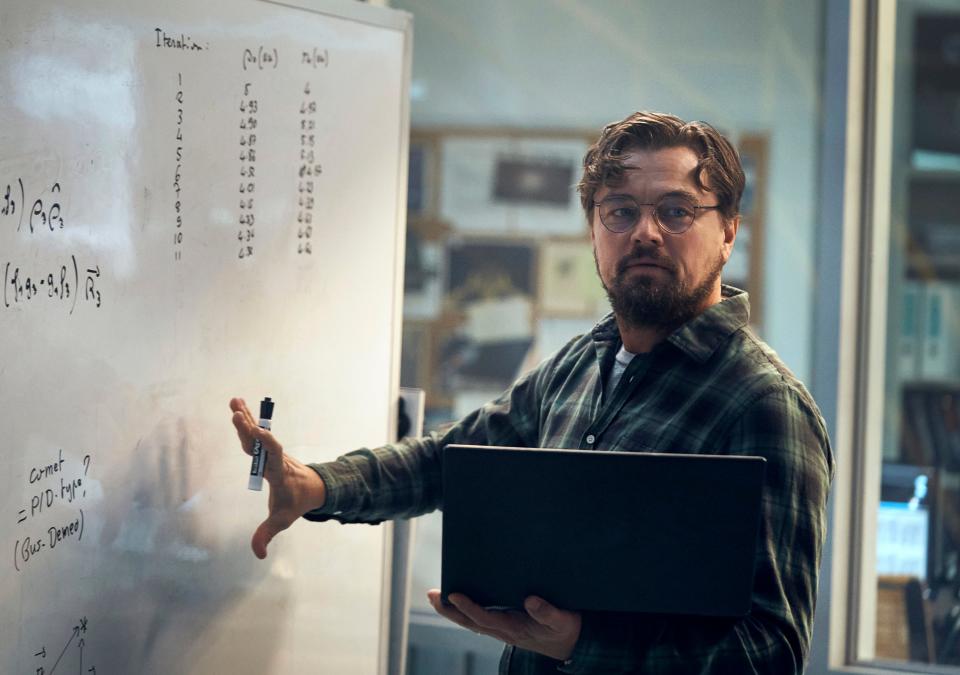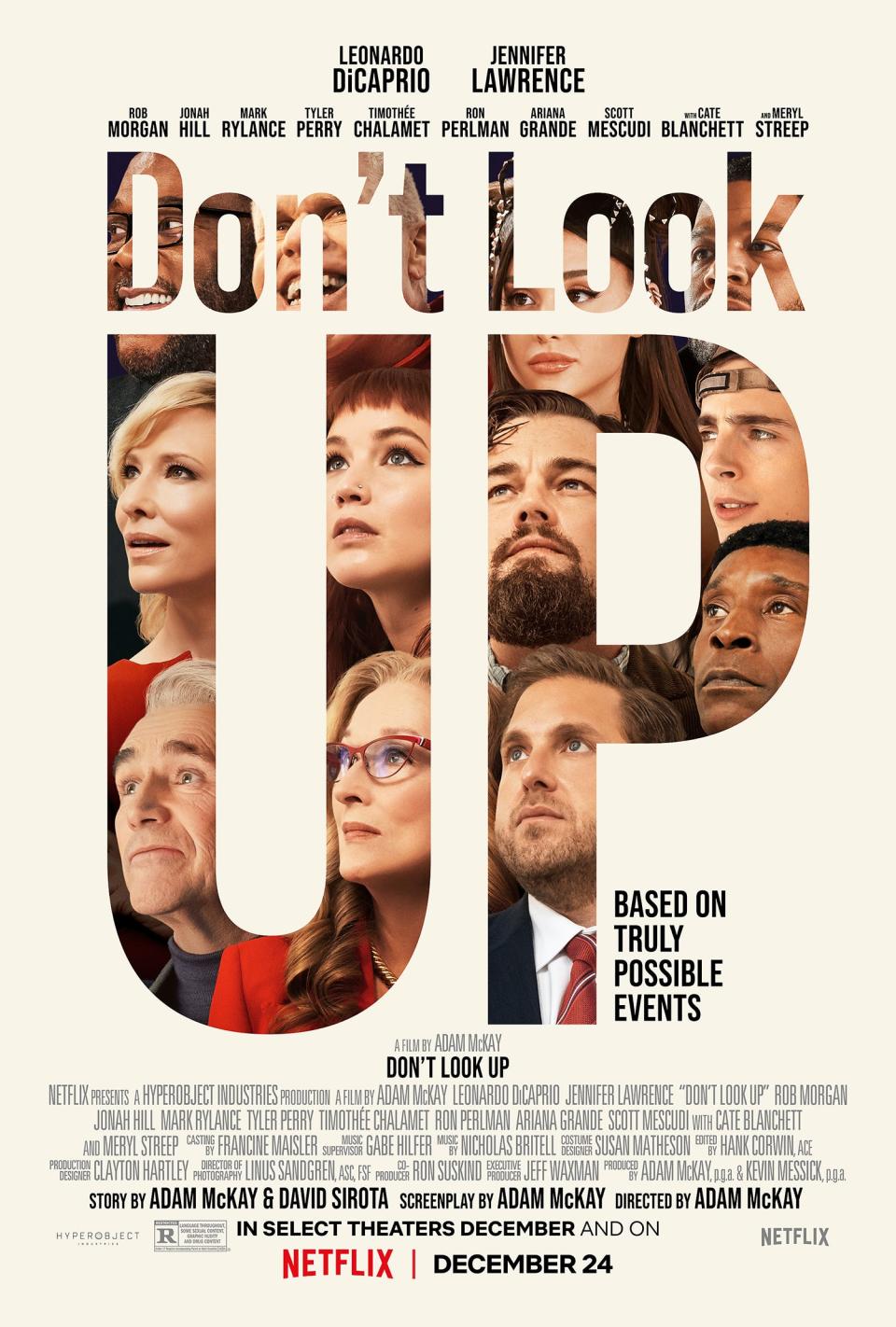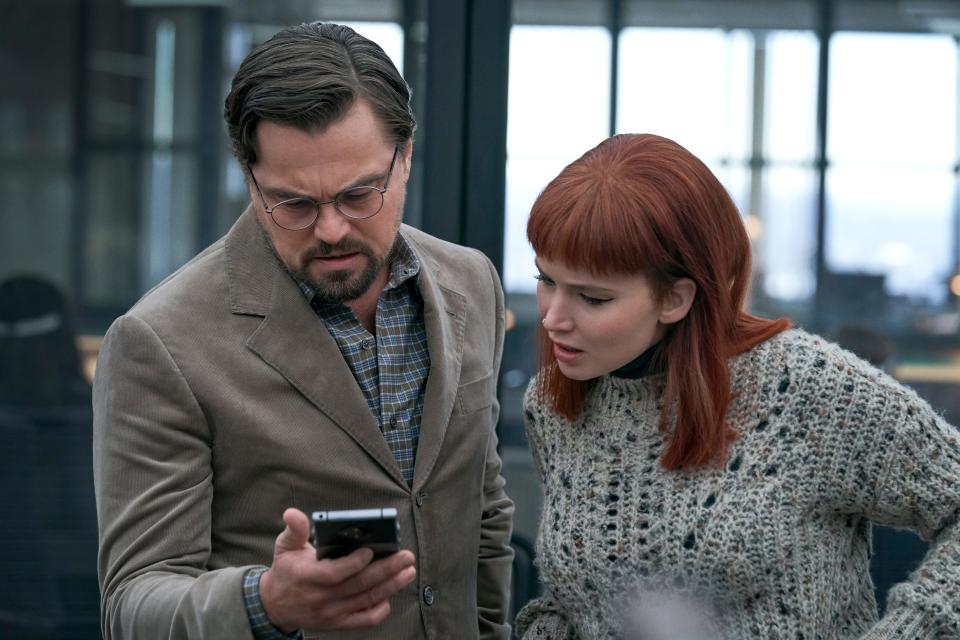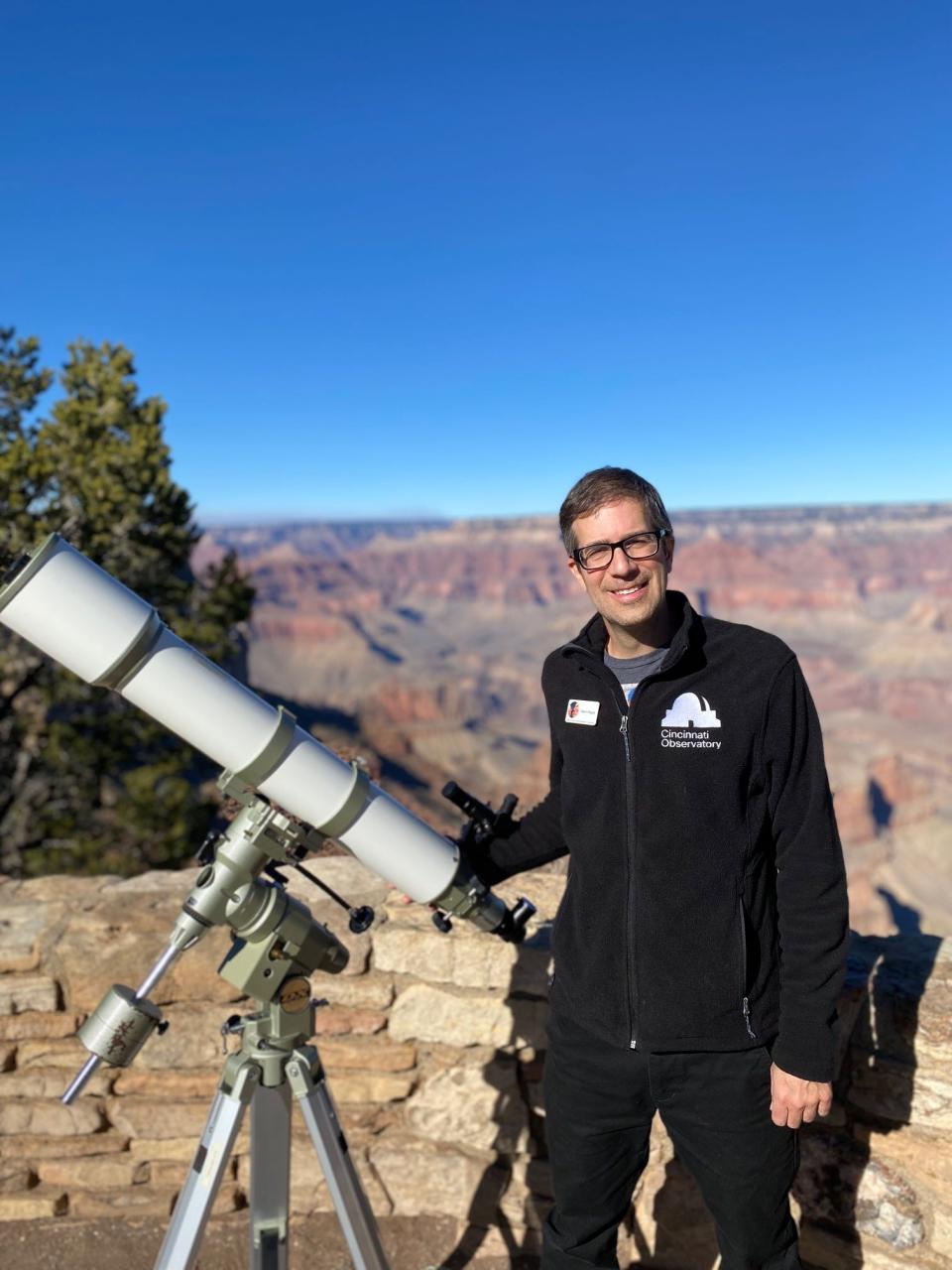Real-life astronomer gives honest review of Netflix's 'Don't Look Up' disaster movie
Dean Regas is the astronomer at the Cincinnati Observatory and author of the books "Facts From Space!" and "100 Things to See in the Night Sky." He can be reached at dean@cincinnatiobservatory.org.
I watched Netflix’s "Don’t Look Up" movie twice: once as a movie patron and again as an astronomer. I’m always interested in how movies portray astronomers and, after two viewings, I’m happy to say we came out looking like the normal ones (maybe the only normal ones).
Note: This review is for people who have already seen the movie, so I won’t rehash the plot. But that also means spoilers are definitely ahead.
Does studying the universe give you a unique worldview? In "Don’t Look Up," that was definitely a theme. In a world filled with the social media-obsessed, the fame-driven, the politically ambitious, the bellicose and everyone in between, the astronomers were the only voices of reason.

Astronomers behaving well
I will say that the astronomers depicted in the movie do not fully represent my colleagues or the field as a whole. But these were the scenes where I thought the movie nailed it.
In the opening scene, Kate Dibiaski (Jennifer Lawrence) displays the true wonder and emotion when she first sees her comet. This is what astronomy is all about: searching and, if you’re lucky and good, finding. It was perhaps one of the best movie scenes to depict the sheer joy of discovery.
Contrast that with the emotion of uncertainty, then certainty, then disbelief, and then terror that Richard Mindy (Leonardo DiCaprio) showed when his math exposed the nightmare scenario: that on paper, the comet was going to hit the Earth. No CGI needed. His face was apocalyptic.
Two types of “scientists”
"Don’t Look Up" also contrasts two types of scientists. The astronomers represent the pure scientist, forever looking, ever-curious. They are in the dome, in the lab. Classic.

The second kind of scientist is demonstrated by eccentric tech-wizard Peter Isherwell (Mark Rylance), who embodies a conglomeration of Elon Musk, Steve Jobs and Mark Zuckerberg. Isherwell is the perfect user of science, the technologist who does things just to do them (and turn a profit). Science and technology are really two sides of the same coin. But the public in "Don’t Look Up" views them as separate entities – one group makes theories while the other makes our lives better. To put it in a more negative way, technologists are just like the astronomers, only much more successful.
Isherwell’s “success” comes at a price: his soul. He obviously does not have humanity’s best interests at heart. His analytics tell him that a vast new pile of minerals on a dead planet is still a vast pile of minerals.
Life on Earth – not just us
Although too short and oddly-timed, the montages of life on Earth impacted me. By showing the various animal and plant life, it reminded me that this planet is not just us. The movie sucks you into human concerns so much that, I’ll admit, I didn’t even think about life other than humans. It made me feel so human-centric.
It made me consider, for maybe the first time, we (humans) have a responsibility to all life on Earth. If we fail, we fail not just us but everything that has evolved from the beginning of time on perhaps the only place life exists. The weight of that responsibility can be overwhelming.

Apocalyptic comedy
One of the most moving scenes was when Dr. Mindy and the public first see the comet with their own eyes. Fear, beauty, wonder, the comet is horrific and glorious at the same time. This is what ancient stargazers must have thought whenever a new, cometary guest emerged in their sky. “Wow,” mixed with, “Uh oh …”
The apocalyptic comedy was at its best when President Orlean (Meryl Streep) smokes in front of a flammable truck while telling Dr. Mindy, “You’re with the grown-ups now.” And when the benefit concert featuring Ariana Grande and Kid Cudi goes sideways so subtly as Grande rises up from the stage in a flowing, nebulous outfit. It was only after five seconds, with my mouth agape, when I realized the supreme tone-deafness of the moment and yelled at the TV, “No! No! Oh my god, she’s the freaking comet. Nooooooo!”

Astronomers are like us
The movie shows the many true intersections between the world of astronomers and everyone else.
I thoroughly appreciated the interviews with morning show hosts Kate Blanchett and Tyler Perry. They so accurately show the astronomers coming face to face with real people trying to make small talk. “Wait,” the interviewers think, “are they astrologers or astronomers? Shoot, what’s the difference?” This is followed by the voice in their heads screaming, “Don’t ask about aliens. Don’t ask about aliens.”
This was exactly what I experienced early in my career with media interviews about latest discoveries. I prepared myself with the facts and then, wham, the first question came at me, “So Dean, you can tell us. Are there really aliens?” Like Dr. Mindy, I quickly learned to be ready for any question, to “keep it simple,” “tell us what it is” and “don’t use math.”
However, one of the major mistakes in this movie: No observational astronomers would sit down for dinner as the comet fell. They would be at the closest point to the impact site and counting it down. Astronomers’ fear of missing out is stronger than even the end of the world.

Do we deserve to survive?
As an astronomer, I’ve wondered, “Will I ever have to break this news to the public?” How would I relate the devastating news that an asteroid is going to destroy life on Earth and there is nothing we can do about it?
I heartily believe in the parting words of the movie, “We really did have everything, didn’t we?” Maybe that is where astronomers have a unique perspective. With all of our studies of the heavens, astronomers have still not discovered one planet where life exists. In fact, there is no place in the universe that we know of, outside Earth, where you can walk outside without a spacesuit and not die instantly and painfully. We may someday find a hospitable planet, ready for us to move in, but it will be trillions of miles away and require a journey of 20,000 years. We can’t run. We can’t hide. There is nowhere else for us to go (and subsequently be eaten by a bronteroc).
Earth has been struck by comets and asteroids before, and it will be struck again. But there’s good news: We are at a point in history, for the very first time, that we can spot an incoming asteroid and do something about it. We have the power to save the Earth. Are we up to the challenge? And as "Don’t Look Up" painfully asks, do we deserve to survive?
Want to discuss space movies? Join Dean for an online class March 8 called "Please Look Up," register at cincinnatiobservatory.org/events.

This article originally appeared on Cincinnati Enquirer: Cincinnati astronomer reviews Netflix's 'Don't Look Up' disaster movie

